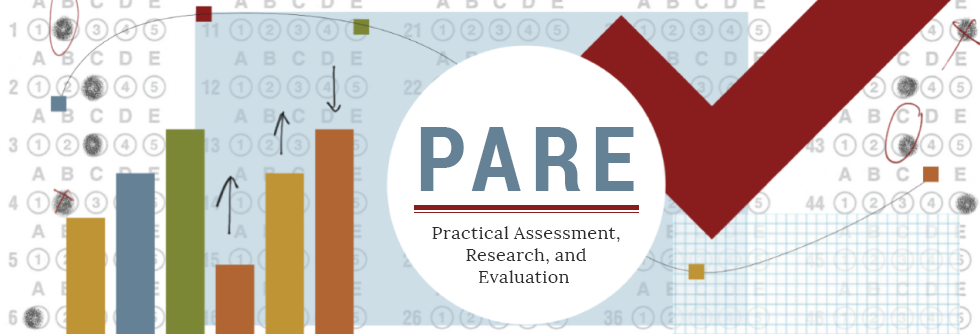Assessing Program Outcomes When Participation Is Voluntary: Getting More Out of a Static-Group Comparison
- Robert F. Szafran
Abstract
This paper describes a straightforward approach to assessing the effect of an educational program when individual student participation in the program is voluntary, pretests are not feasible, and the statistical expertise of program personnel or assessment audiences is limited. Background characteristics of students believed to influence the outcome of interest are selected. In order to compute a control group outcome which can be compared to the program group outcome, control group member outcomes are weighted based on the proportion of program participants with the same combination of background characteristics. In this way the outcomes of the control group are estimated had that control group the identical background characteristics as the program group. Accessed 15,053 times on https://pareonline.net from May 29, 2007 to December 31, 2019. For downloads from January 1, 2020 forward, please click on the PlumX Metrics link to the right.
Keywords: Research Methodology, Statistical Analysis, Evaluation Methods
How to Cite:
Szafran, R. F., (2007) “Assessing Program Outcomes When Participation Is Voluntary: Getting More Out of a Static-Group Comparison”, Practical Assessment, Research, and Evaluation 12(1): 8. doi: https://doi.org/10.7275/9bw1-m645
Downloads:
Download PDF
View PDF
750 Views
138 Downloads
